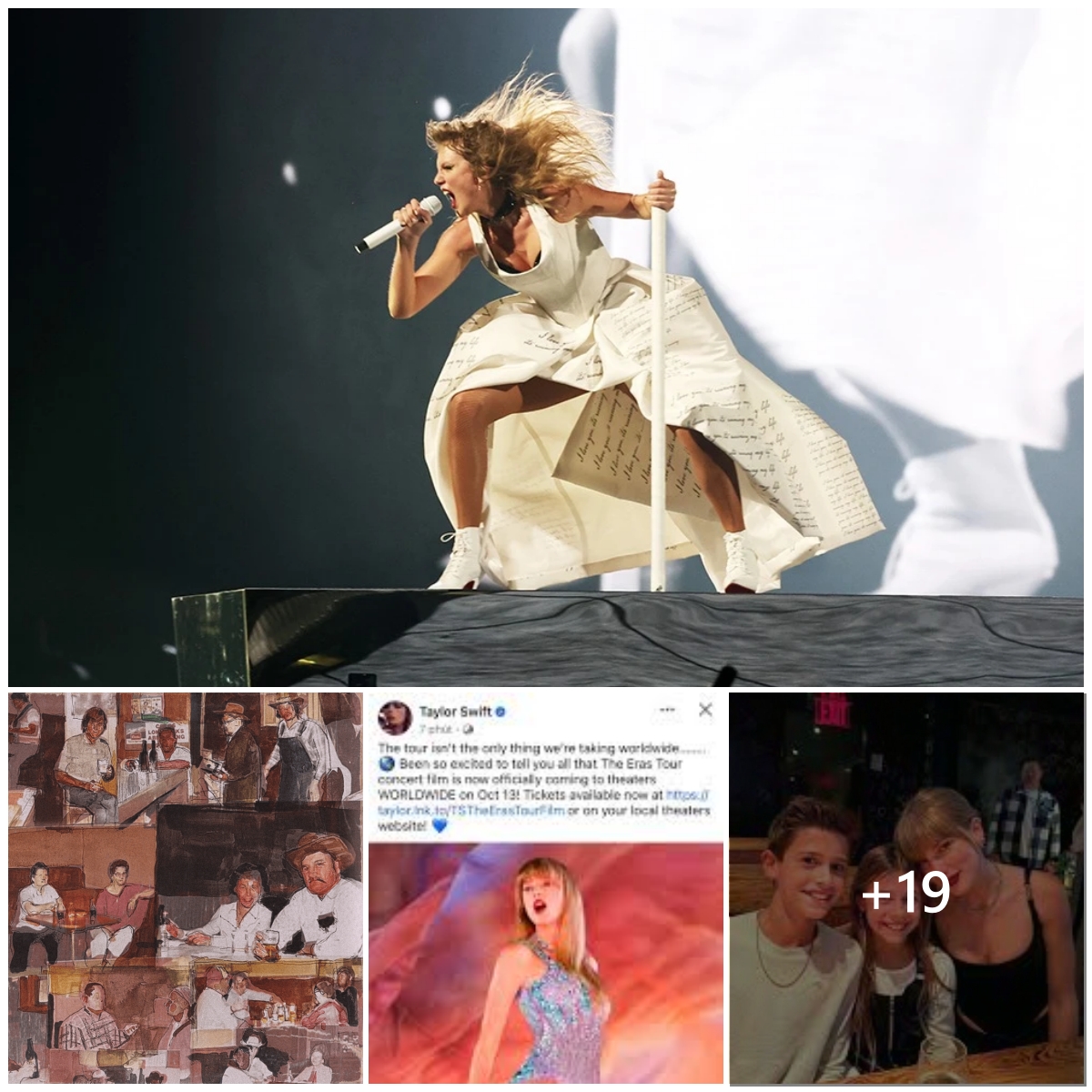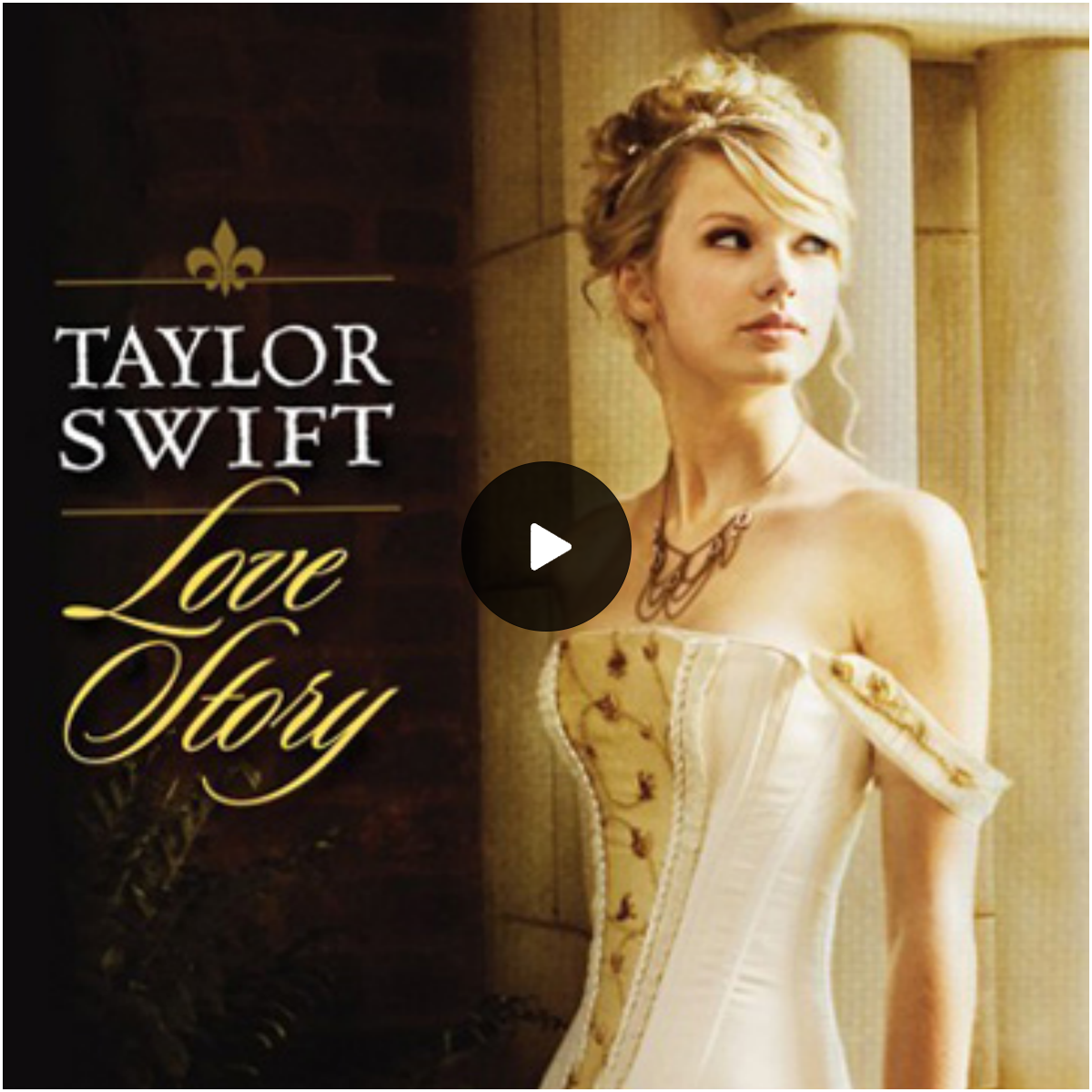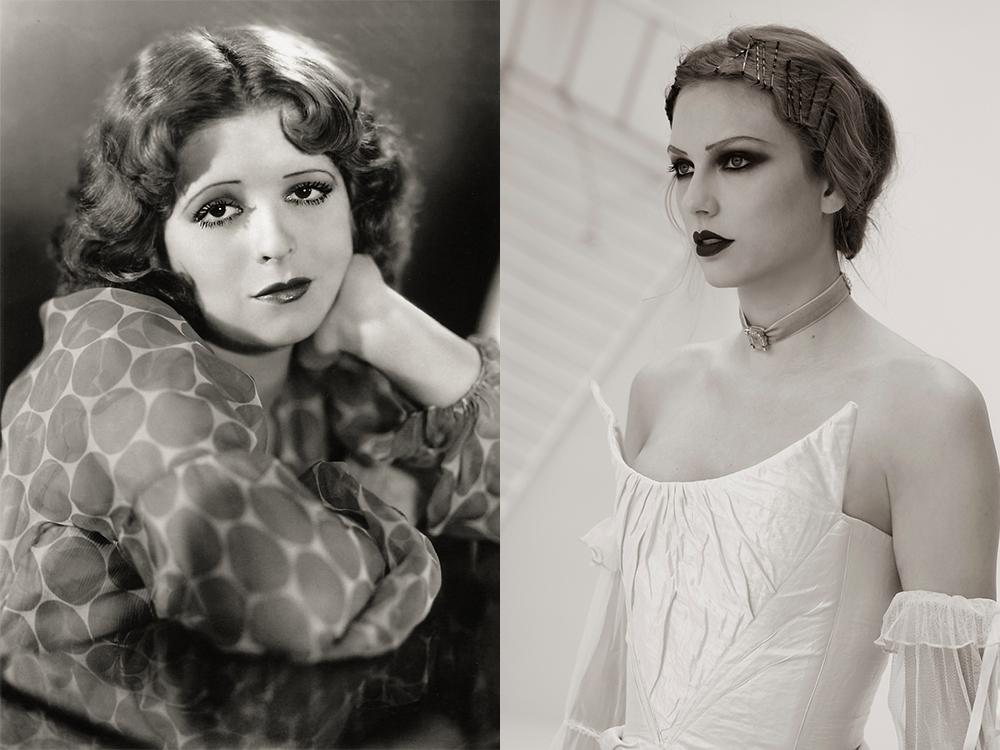
Taylor Swift creates a look reminiscent of It Girl Clara Bow in the MV “Fortnight.” Photo: Wikipedia, Taylor Swift
How would life change if you made your dream come true only for it to become your worst nightmare? That is the story of Clara Bow (1905–1965), a pioneering Hollywood film star.
Recently, Clara was mentioned again in the song Clara Bow in Taylor Swift’s new album The Tortured Poets Department . Furthermore, Taylor Swift’s appearance in MV Fortnight also reminds the public of Clara Bow.
Although Clara Bow’s heyday took place nearly 100 years before Taylor Swift, Clara’s story and the pitfalls of fame still have notable similarities to those of today’s female stars. must face to face.
Clara Bow – Hollywood’s first It Girl
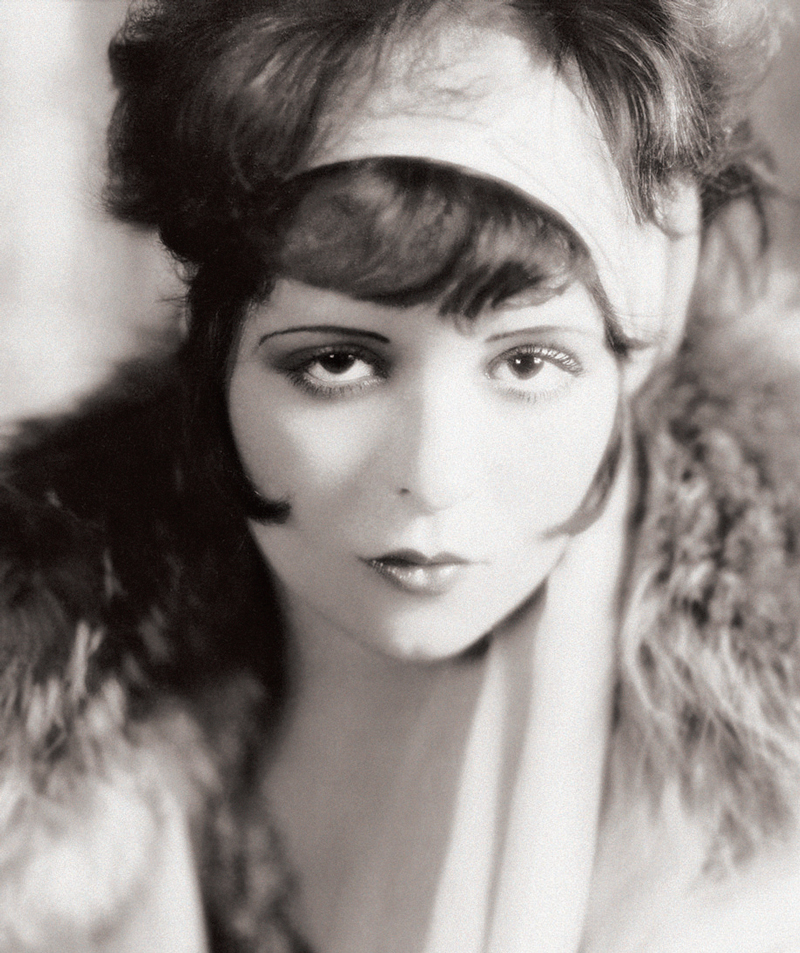
Clara Bow built her own liberal flapper image and became Hollywood’s first It Girl after filming the movie “It”.
During the silent film era, Clara Bow was Hollywood’s first sex symbol. After appearing in the movie It (1927), Clara Bow gave birth to the first phrase It Girl. From year. From 1923 to 1933, her vibrant screen presence captivated audiences across America.
Clara Bow’s dream of becoming a star was nurtured from childhood pain. She grew up in shabby apartments in Brooklyn, New York, with a mother suffering from mental illness and a father who was often absent due to alcoholism. At school, with her tattered clothes, chestnut hair, and habit of stuttering, Clara was often bullied by other girls.
Whenever she earns a little money, Clara goes to the cinema as a place to escape from the difficulties of family life and school. She confided: “That was the first time I realized this world is full of beauty. For the first time I saw distant lands, beautiful, romantic and noble peaceful houses. My heart burns with love for cinema because of what the screen brings to a lonely, hungry and unhappy child.”
Fascinated by her dreams on screen, Clara Bow was determined to pursue an acting career. In 1921, the Fame and Fortune contest attracted Clara’s attention with the prize of a film role. She submitted her photos and was invited to a series of screen tests. After 5 rounds, Clara was announced as the winner.
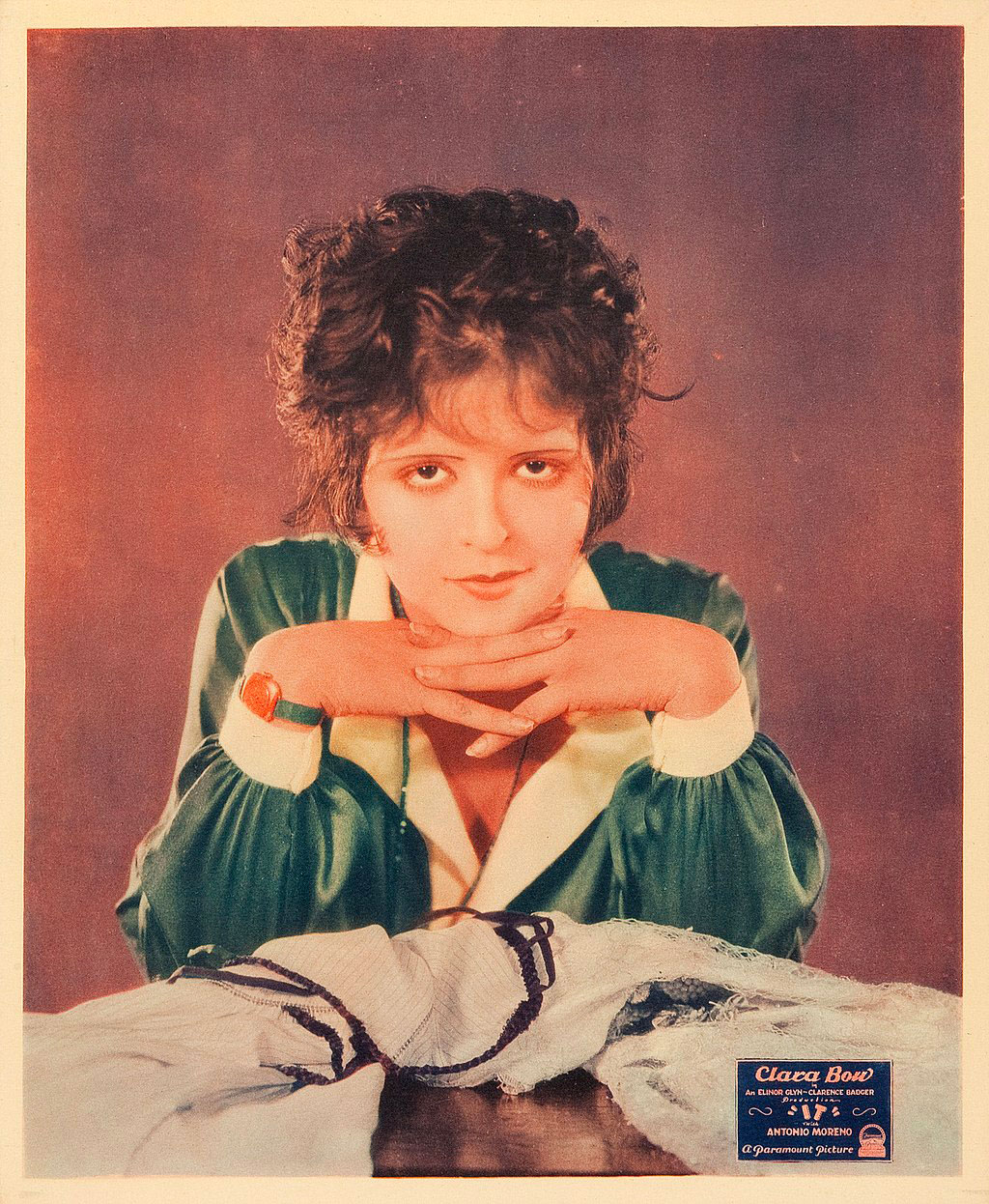
Clara Bow in the movie It (1927). Photo: Paramount Pictures/ Heritage Auctions/ Wikipedia
On the pages of the January 1922 issue of Motion Picture Classic magazine, her image was published under the headline A Dream Comes True . Indeed, at age 16, Clara Bow seemed to be making her dreams come true. Notably, Taylor Swift was only 16 years old when she released her debut album.
In Hollywood, Clara quickly attracted attention with her vibrant energy and expressive face. In an era where studios were constantly churning out films, Clara worked tirelessly, sometimes for two or three companies at once.
In her roles, Clara recreated the typical flapper girl image of the 1920s: a cheerful, sexually free girl, drinking, smoking, using slang, cutting her hair short, makeup, and short skirts. Her flapper roles challenged traditional gender norms and inspired a new model of modern femininity. “I had to establish myself,” Clara explains. If I am known as the ‘super-flapper’ and ‘jazz-baby’ of cinema, it is because I have created an image for myself.”
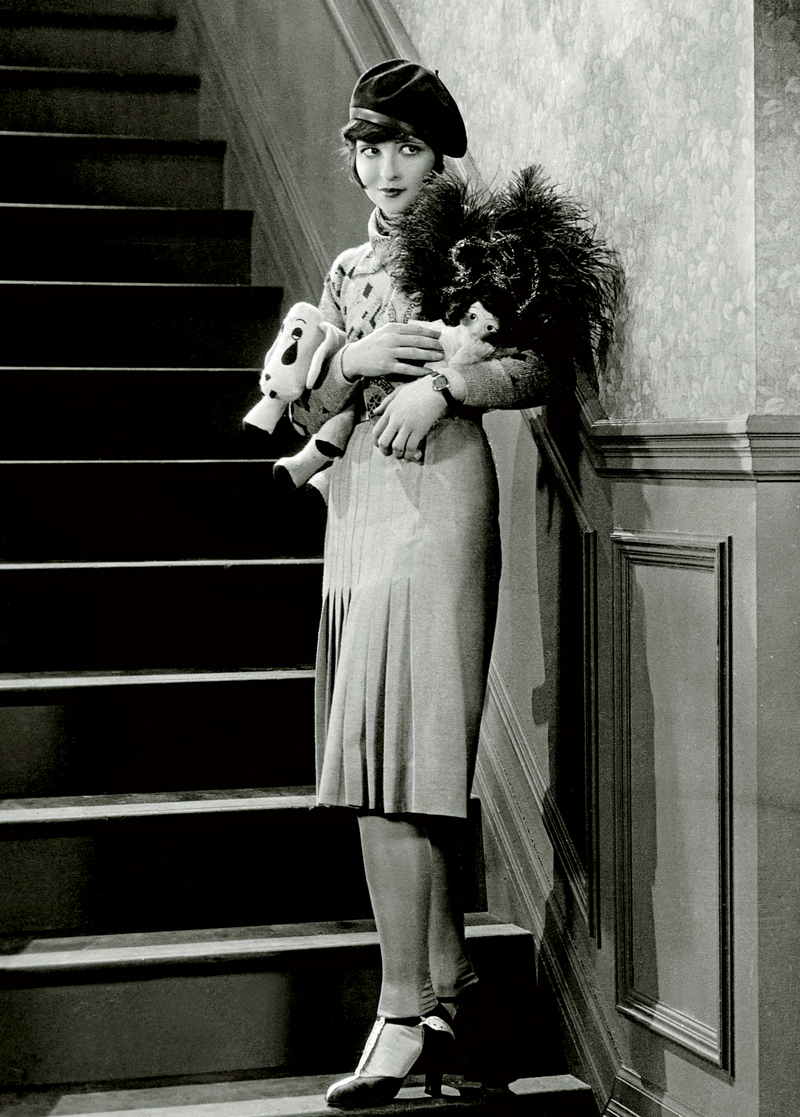
With his reputation, this silent film actor and genuine flapper once received 45,000 fan letters in a month.
After years of suffering in poverty, Clara suddenly finds herself in the wealth and fame she once dreamed of. At the peak of her popularity in 1929, she received up to 45,000 letters from fans each month. Female fans imitated her plump lips, heavily lined eyes, and short, bright red hair.
Clara responded to fame by diving into relationships and enjoying the joys that she had not had in her previous difficult life. “So many bad things happened to me as a child,” she told a reporter in 1928. I always feel like I have to win at life, seize every opportunity, enjoy every moment because I don’t know what my life will be like tomorrow.”
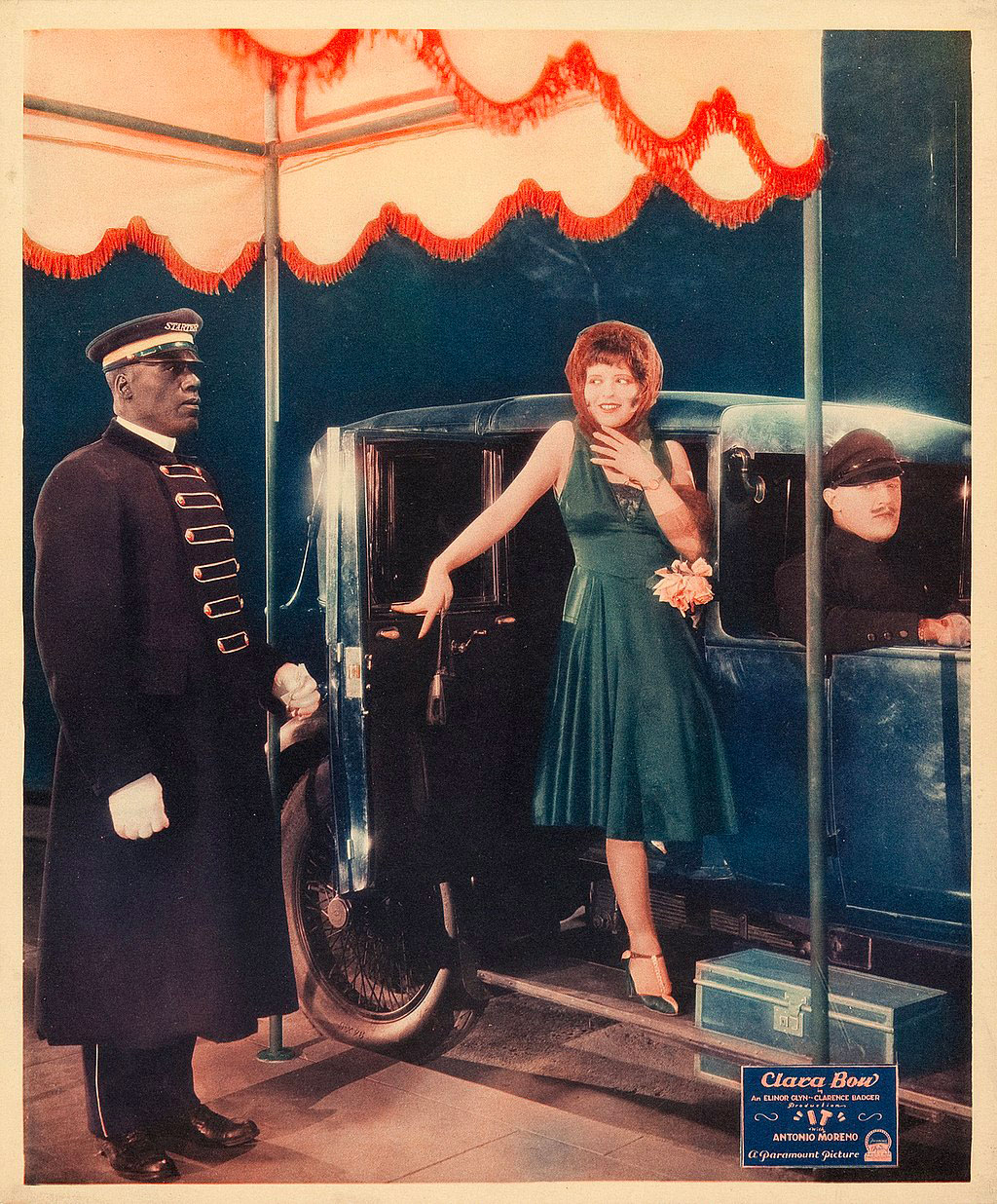
Clara Bow in the movie It (1927). Photo: Paramount Pictures/ Heritage Auctions/ Wikipedia
Contrary to other actors who carefully build their image, Clara Bow has lived true to herself without any regrets. Her refusal to follow Hollywood’s hidden rules made her a target of jealousy from her colleagues and gossip from the tabloid press. Whether true or not, the salacious stories helped sell newspapers, and Clara Bow became the subject of the most outrageous accusations.
Clara’s honesty only makes things worse. With no communications manager to guide her, she gave an interview in 1928 where she candidly revealed heartbreaking details about her past, including her mother’s attempts to killed her during a schizophrenic episode.
As the exuberance of the 1920s turned to the depression of the Great Depression of the 1930s, Clara Bow was abandoned as a symbol of the profligacy of the previous decade. Haunted by malicious rumors, exhausted from work, and worried by constant scrutiny, Clara left the stage in 1930.
“All I want is the peace and privacy that everyone deserves,” she said. But in Hollywood, your life never belongs to you. You can’t love whoever you want, get married, or have kids without the world staring at you and asking intrusive questions. If you don’t share every intimate detail, they will see you as annoying and arrogant.”
What did Taylor Swift mean by writing the song called Clara Bow ?
Clara’s words suggest that little has changed in the situation of female celebrity since the early 20th century. If anything has changed, technology has only increased the intensity of scrutiny that stars like Taylor Swift face. suffer.
Like Clara, Taylor Swift also endured criticism for her love life and was smeared by inaccurate rumors. However, Clara doesn’t have to deal with social media and the internet, where rumors about Taylor Swift and her relationship timeline are all over the internet. Taylor Swift responded to media scrutiny by releasing the album Reputation in 2017 and self-publishing a magazine with covers that mocked tabloid headlines.
Taylor Swift, like Clara Bow, has experienced the painful ups and downs of fame. Taylor once confided: “I have been brought up and down by public opinion countless times. I was crowned, then it was taken away.”
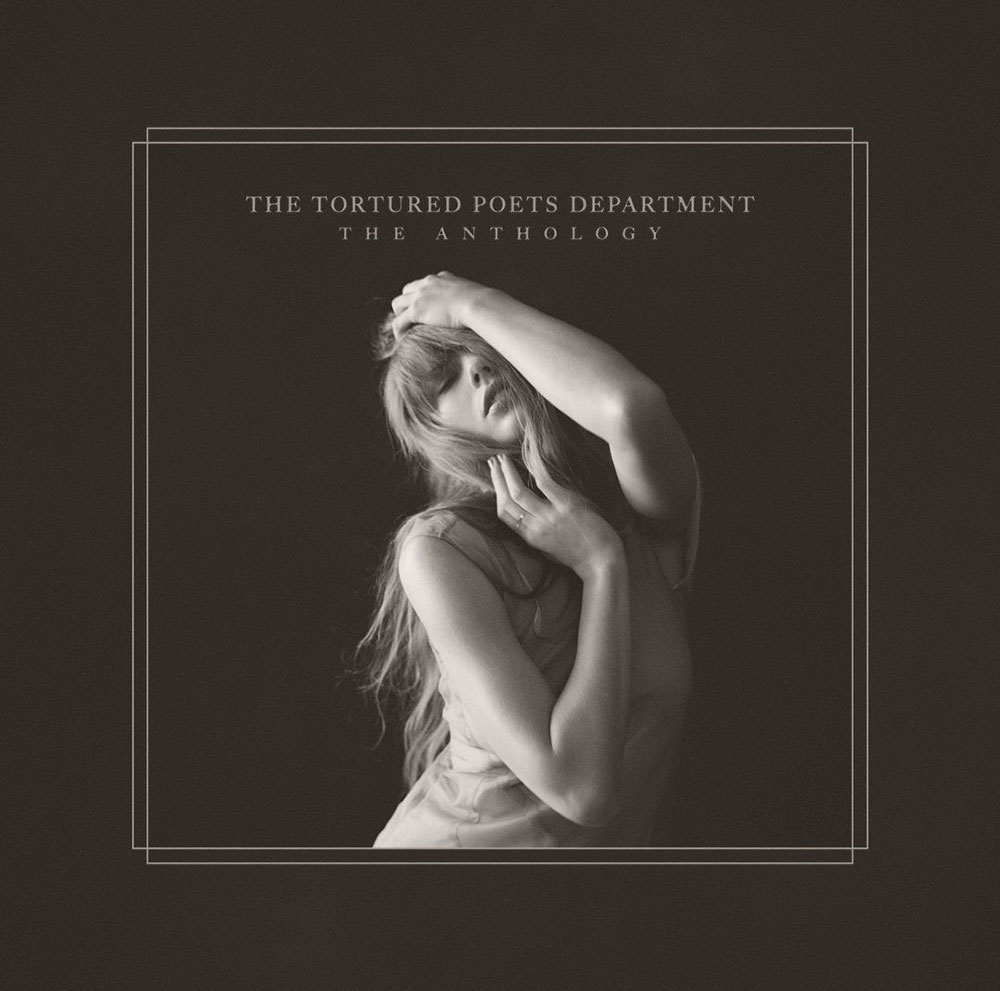
In the song “Clara Bow,” Taylor Swift implicitly compares the turbulence that fame brings to her with Clara’s life.
After a two-year break to take care of her mental health, Clara returned with two highly regarded sound films, Call Her Savage (1932) and Hoopla (1933). Next, she decided to leave Hollywood forever, choosing a peaceful life on a farm in Searchlight, Nevada, with her husband, actor and politician Rex Bell, and their two sons.
She realized that fame was not the dream she expected. Clara shared with Motion Picture: “You spend all your youth and energy pursuing what you think is most important, and when you achieve it, you realize that it is not what you wanted. Not only does it not bring happiness, but it also robs you of things that could have made you happy.”
Giving up a career that was once a childhood dream seemed like the best decision for Clara Bow. As she explained to a Los Angeles Herald reporter in 1932: “Now I only wish to find true happiness.” With the huge success of her Eras Tour and amid a new romance, it seems Taylor Swift is aiming for the same goal.
In the song Clara Bow , Taylor Swift implicitly compares the turbulence that fame brings to her with Clara’s life. The way Taylor replaces the name Clara Bow with Taylor Swift in the lyrics seems to emphasize that both Clara Bow and Taylor Swift have experienced the hardships that fame brings, and that there will be other girls after This will also face the same fate.
Reaction from female celebrity Clara Bow’s family to Taylor Swift’s song Clara Bow
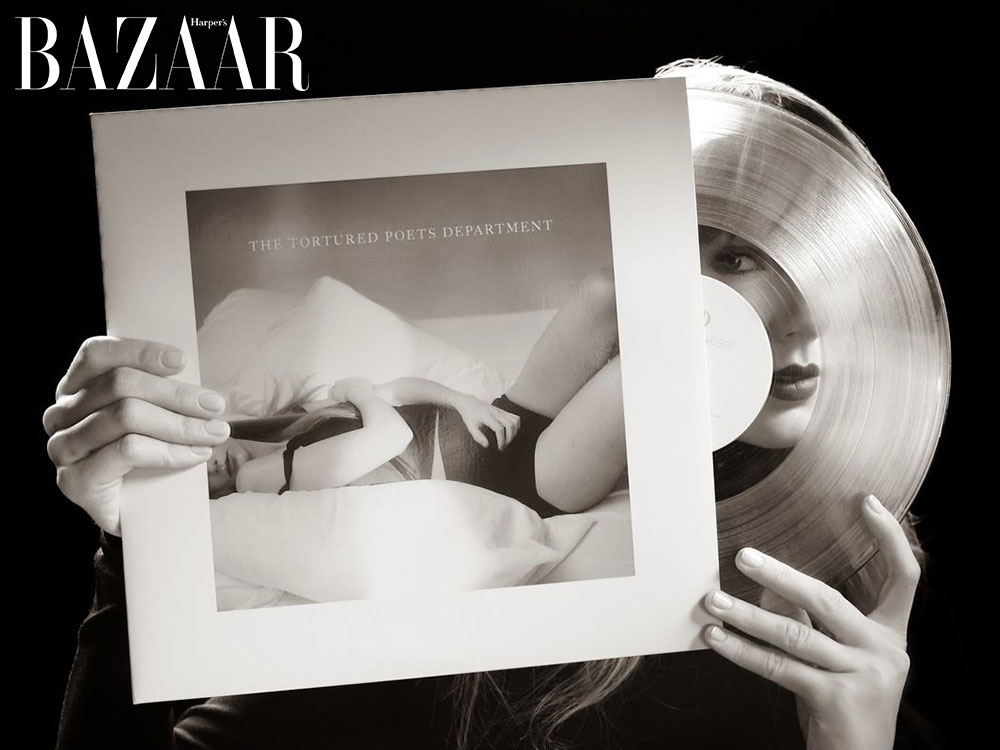
Clara Bow’s great-granddaughter, Nicole Sisneros, told People: “Both [Clara Bow and Taylor Swift] are talented artists. My family and I love the song and we are grateful to Taylor for connecting with Clara’s legacy through songwriting.”
Brittany Grace Bell, another great-grandchild of Clara Bow, added: “To me, the song feels like it belongs in the glamorous world of fame and is somewhat sad. Clara was a rose* chosen by men in Hollywood who took advantage of her fame and talent. I think this song perfectly describes how Clara feels about being Hollywood’s It Girl.”
*In the song Clara Bow , Taylor Swift wrote: “You look like Clara Bow in this light / Remarkable / All your life, did you know / You’d be picked like a rose.”
MAYBE YOU ARE INTERESTED:
Harper’s Bazaar fashion magazine


